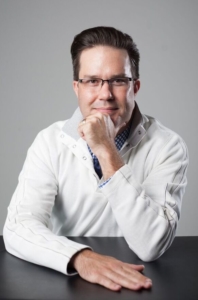Everything is in alignment as Indianapolis Chamber Orchestra returns to public concerts at the estimable Schrott Center
Notes of triumph without the kind of exaltation that came more easily to Beethoven than it does now still prevailed in Michael Schelle's "Resilience," a three-movement concerto for the unusual duo combination of viola and cello in the solo roles.
A Schelle-Beethoven polarity was bracingly established in the first half of the Indianapolis Chamber Orchestra's return to the concert stage Saturday night at Butler University's Schrott Center.
Butler's longtime composer-in-residence has engaged with Beethoven directly in his prolific career, most memorably in the 1995 solo piano piece "Hammerstein," both a send-up of and a salute to the creator of 32 immortal piano sonatas. There is a wealth of parody, pop-culture commentary of edginess and charm, and unbuttoned cleverness throughout Schelle's music.
"Resilience" puts aside mere cleverness (which Schelle will probably never abandon, and would never consider "mere") to wax autobiographical and elegiac on the theme of war and hard-won recovery from its horrors and losses.
 |
| Matthew Kraemer, ICO music director |
It made an eminent centerpiece for a program that ICO music director Matthew Kraemer titled "War in Music." Schelle's 2015 composition wasn't overshadowed by either Beethoven's "Egmont" Overture or Haydn's imperishable "Drum Roll" Symphony (no. 103 in E-flat). The other piece on the program was an enriched pastel tone poem titled "The Banks of Green Willow" by George Butterwortth, whose development was cut short by his battlefield death as a British soldier in the First World War.
The first movement of "Resilience" opens with a Schellean "Schreckensfanfare," as the dissonant launch of the Beethoven Ninth Symphony finale was dubbed by Richard Wagner. The expanded resources and harmonic language of the 21st century permit a more shattering representation of mass terror in such a sonorous explosion. But more personal, intimately expressive music, much of it embodied in the solo instruments, lies at the heart of "Dachauslieder." Schelle traces that to his experience visiting the site of the Nazi death camp at Dachau, Germany, several years ago. There he came across a fragmentary song written on a wall that, after a long gestation, he brought to rebirth in adapted form for the first part of the double concerto.
 |
| Michael Schelle rubs shoulders with Beethoven, Haydn. |
The partnership of the solo instruments — more than capably represented here by two musicians associated with the University of Michigan: violist Matt Albert and cellist Joshua DeVries — conveys much of the piece's all-embracing message in intimate terms. Schelle is playing serious games with the huge macro/micro polarity of the total-war experience, and thus also with the traditional concerto contrast of solo instrument(s) and ensemble.
He extends this into the second movement, "Rising Sun, Falling Sky," which passes for a slow movement, though without the usual emotional relief of concerto movements in the middle position. The focus turns to Japan, the homeland of the composer's wife, Miho Sasaki. The cataclysm suffered by Japan that ended World War II, in which Schelle's father served, is seen as a concern both in its actuality and as a motivator of a difficult nostalgia. There was some fine highlighting of solo instruments in the orchestra, especially bass clarinet and harp. There are delicate tints in Schelle's palette as well as bold, even garish colors.
In the final movement, a tone of aftermath, indefinite and conflicted about its healing potential, is established and maintained. "Blast of Silence" reinforces the fraught journey the orchestra and two soloists have made up to this point. Viola and cello are like twin witnesses to some of the most consequential challenges of the 20th century. Different responses to such challenges are suggested by contrasts within the duo, such as the viola's putting forth sustained lyricism while the cellist delivers hard, snapping pizzicato notes. After sustained applause for the piece, the composer and the soloists, Albert and DeVries returned to the stage to play a delightful encore, a faux-naif evocation of folk music, especially its plucked instruments: Caroline Shaw's "Limestone and Felt."
From the start Saturday night, it seemed evident everything about the ICO was in apple-pie order as it resumed its concert presence in its accustomed home. The acoustically splendid Schrott allowed for a varied display of precision, starting with the Beethoven overture's sense of foreboding, then armed struggle leading to the hero Egmont's death, emerging with a famous turnaround to the prospect of victory over Spanish control of the Low Countries during the 16th century. Balances were exemplary, with the exception of some excessive brass stabs underlining the triumphant music.
Haydn's "Drum Roll" symphony offered a flamboyant example of a work more than living up to its nickname: there was greater ad libitum treatment of the opening and once-recurring timpani solos than I've ever heard. It made for an especially striking introduction to the unusually designed work, one of Haydn's "Salomon" symphonies named after the impresario who enlivened Haydn's senior years with commissions for the receptive English public. Mastery was a given, and the old man delivered.
The performance hit the highest level of the ICO's achievement in recent years. Tempos were justly set and carried through evenly and spiritedly. The symphony's most notable design miracle, Andante piu tosto allegretto, with its compositional zest given patient variation form, received an inspired level of attention to detail that flowed from the podium throughout the ensemble.
I spoke above about Schelle's cleverness as a composer, which is never in doubt but which can't well be applied to "Resilience" without somehow diminishing it. In any case, I'm sure the living American composer doesn't mind yielding the palm in cleverness to his illustrious Austrian predecessor. Such a performance as Haydn's 103rd enjoyed Saturday night more than proved the point, to the great credit of Kraemer and his orchestra.



Comments
Post a Comment